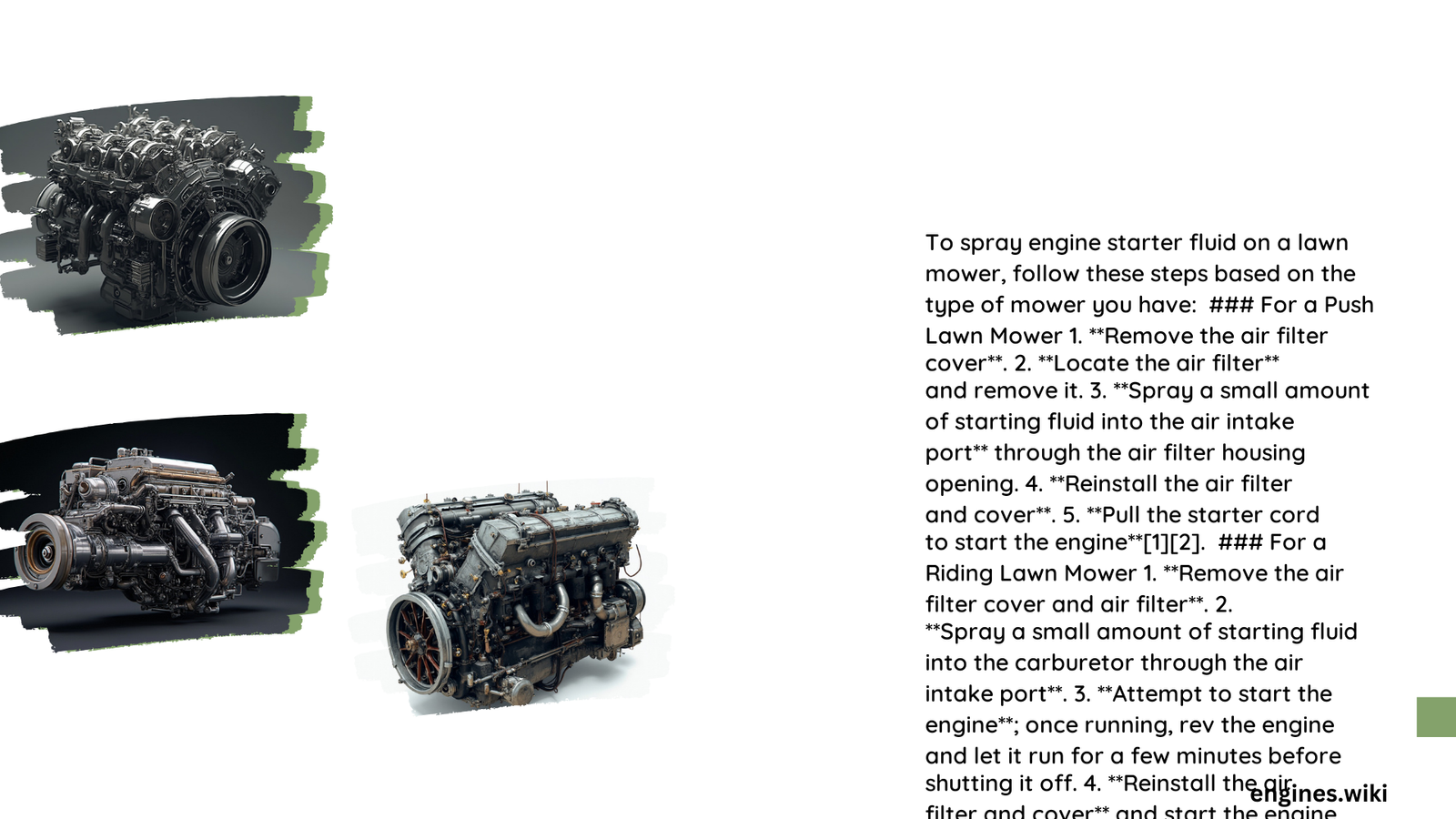When your lawn mower struggles to start, engine starter fluid can be a quick solution. However, precise application is crucial to prevent potential engine damage. Understanding the correct locations and techniques for spraying starter fluid can help you revive your lawn mower’s engine efficiently and safely, avoiding common mistakes that could lead to costly repairs.
What Are the Primary Locations for Engine Starter Spray?
Where Should You Spray on a Push Lawn Mower?
For push lawn mowers, the application process requires careful attention:
- Air Intake Preparation
- Remove the air filter cover
- Carefully extract the air filter
-
Expose the air intake port completely
-
Spray Technique
- Use a minimal amount of starter fluid
- Direct spray into the air intake port
- Avoid excessive saturation
How to Apply Starter Fluid on Riding Lawn Mowers?
Riding lawn mowers have slightly different requirements:
| Component | Action | Caution Level |
|---|---|---|
| Air Filter | Remove cover | High |
| Carburetor | Spray through intake port | Critical |
| Choke Setting | Set to full choke | Important |
What Precautions Should You Take When Using Engine Starter?
Timing and Frequency Considerations
- Use as last resort
- Wait between starting attempts
- Check oil levels before application
- Avoid repeated spraying
Why Proper Spray Location Matters?
Incorrect application of engine starter fluid can lead to:
– Engine flooding
– Potential internal damage
– Reduced engine performance
– Unnecessary wear on engine components
Expert Tips for Successful Application
🔧 Professional Recommendations:
– Use starter fluid sparingly
– Understand your specific lawn mower model
– Consult manufacturer guidelines
– Maintain regular equipment maintenance
Common Mistakes to Avoid
- Spraying excessive fluid
- Ignoring underlying mechanical issues
- Using starter fluid as a regular starting method
- Neglecting proper engine maintenance
Technical Insights on Starter Fluid Mechanics

Engine starter fluid contains volatile compounds designed to facilitate quick ignition in cold or hard-to-start engines. The fluid’s composition allows for rapid vaporization, providing the initial combustion spark needed to overcome starting resistance.
When Should You Consider Using Starter Fluid?
Ideal scenarios include:
– Cold weather conditions
– After long storage periods
– When battery power is marginal
– Initial seasonal equipment startup
Potential Risks of Improper Usage
⚠️ Warning Indicators:
– Excessive white smoke
– Rough engine idling
– Difficulty maintaining consistent engine speed
– Unusual knocking sounds
Maintenance Best Practices
- Regular oil changes
- Clean air filters
- Use fresh fuel
- Store equipment properly
- Perform seasonal maintenance
Alternatives to Starter Fluid
- Battery maintenance
- Proper winterization
- Using fuel stabilizers
- Keeping equipment in heated environments
Conclusion
Mastering the art of applying engine starter fluid requires precision, knowledge, and careful technique. By understanding the correct locations and methods, you can effectively restart your lawn mower while minimizing potential risks.
